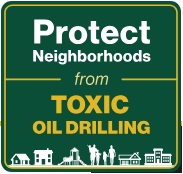Boosted By Methane Releases, Oil And Gas Sector Is Number Two in Global Warming Pollution
February 11, 2013Why 'Safe' Regulation of Fracking of New York Is a Fiction
February 11, 2013One of three outside consultants tapped to assist with New York’s health review of hydraulic fracturing said it’s “absurd” that there hasn’t been an in-depth, national review of the gas-extraction process’ impact on human health.
In an online seminar given in January, UCLA professor Richard Jackson called for greater study of high-volume hydrofracking on a national level. But he cautioned that his comments during the 52-minute seminar are “not necessarily incorporated into the comments I’ve provided to New York State.”
“You can do health impact assessments briefly or you can do them in great depth,” Jackson said during the seminar. “I think we need a national one in great depth and it’s just absurd that we’re five to seven years into this vast enterprise of doing hydraulic fracturing and there’s not been a full-blown, national health impact assessment.”
Jackson, along with two other doctors from other universities, was selected in November to assist state Health Commissioner Nirav Shah in his review of the Department of Environmental Conservation’s proposed safeguards for fracking.
Both supporters and opponents of fracking have been critical of the state for the lack of transparency surrounding the health review. Gannett reported Friday that the three experts had issued their recommendations weeks ago, which was not disclosed in lengthy budget testimony given to lawmakers over the past two weeks by Shah and the DEC. In an email to an advocacy group, Jackson said he “had access to and looked generally at the (DEC’s) enormous (Environmental Impact Statement) but my role was to review the health issues and plans.”
Jackson touched on a number of issues related to fracking during his January presentation and subsequent question-and-answer session.
On the economic and energy benefits of the vast reserves of natural gas:
“We’ve got to make sure there are long term benefits and its not the typical boom bust cycle that we see with every other gold rush and in fact thats exactly whats going on with hydraulic fracturing is its a gold rush.”
On the potency of methane and a greenhouse gas:
“Methane is far more effective a greenhouse gas than is carbon dioxide and is a major contributor to local air quality problems and it has it’s own set of risks as well. I really feel very strongly, I want to come back to this, that all energy sources have health impacts and as we pick what we are going to work on we need to minimize the negatives on the ones that we’re using. And I do think that moving coal power plants to methane is a big improvement.”
Here’s the full seminar, which was posted on UCLA’s website:
Continuing the Conversation – Hydraulic Fracturing Impacts Human Health: Public Health Strategies to Reduce the Risks from UCLA Fielding School of Public H on Vimeo.



